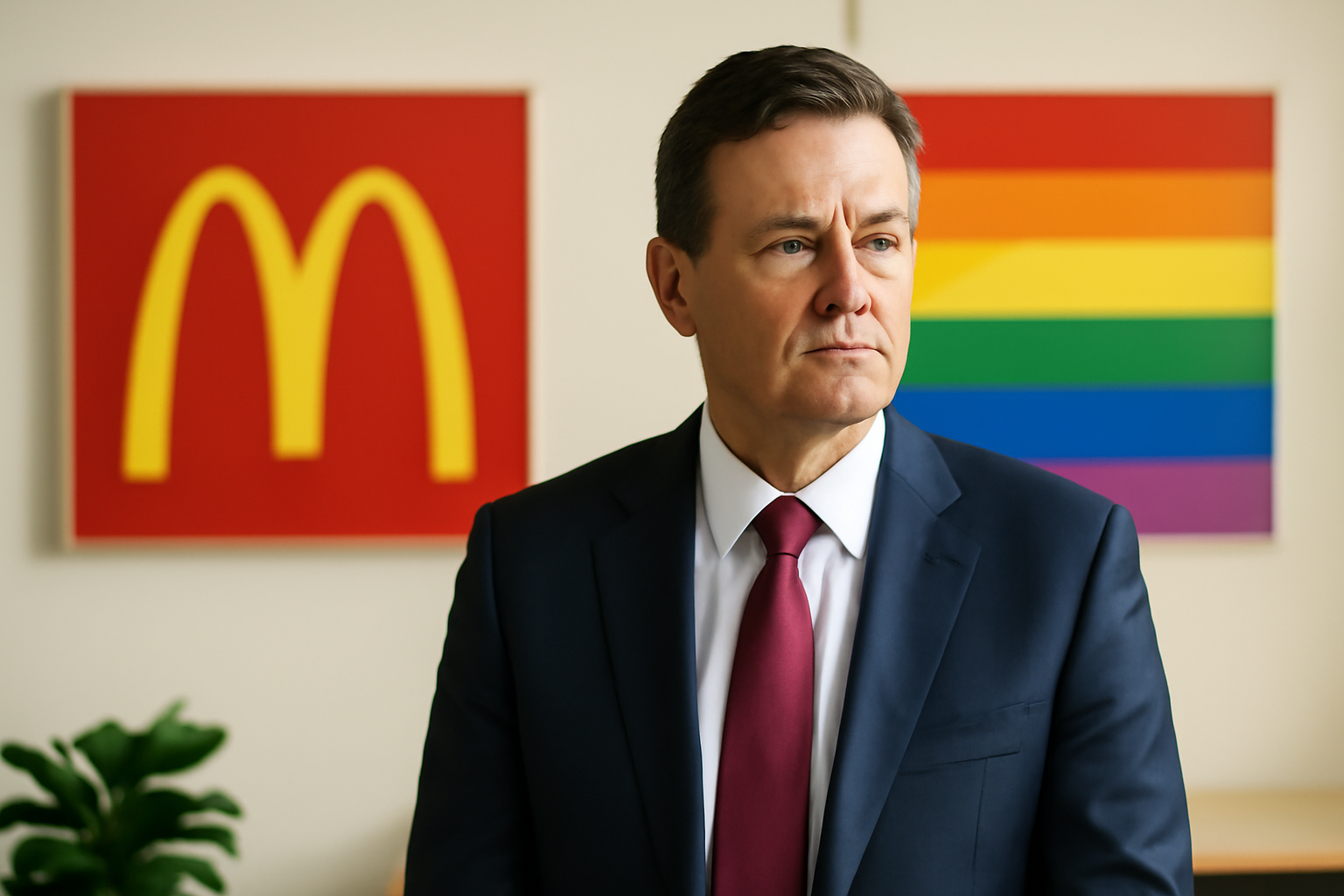
On Monday, McDonald’s joined a growing list of major companies altering their diversity, equity, and inclusion (DEI) strategies. The fast-food giant announced plans to phase out certain representation objectives and DEI supplier mandates while temporarily halting involvement in external assessments such as the Human Rights Campaign’s Corporate Equality Index (CEI).
This decision was communicated to employees through an internal email, citing the "evolving legal landscape" post-2023 Supreme Court ruling in the Students for Fair Admissions v. Harvard case. McDonald’s leadership explained that they are aligning with industry peers who are similarly reassessing their DEI commitments.
Other notable companies, including Ford Motor Company, Harley-Davidson, Molson Coors, Lowe’s, and Tractor Supply, have also announced plans to scale back on DEI initiatives, especially those targeting LGBTQ+ employees and communities.
The Influence of External Factors
Conservative figures like Robby Starbuck claim influence over these corporate decisions, although the precise impact of such campaigns remains uncertain. These moves come amid heightened scrutiny of corporate DEI efforts, with right-wing opposition potentially intensifying as political dynamics shift.
The Human Rights Campaign (HRC) released its 2025 CEI report, highlighting the participation of 1,449 businesses in their benchmarking survey, which assesses company policies and practices relevant to LGBTQ+ employees. Despite recent anti-LGBTQ+ rhetoric, 72 new companies joined the CEI, marking a nearly 5% increase from the previous year.
HRC’s Advocacy for Inclusion
According to the HRC, 765 corporations achieved a perfect score of 100 on the CEI, demonstrating substantial improvements in inclusive workplace practices and equitable benefits for all LGBTQ+ employees. HRC President Kelley Robinson stated, "The core mission of the CEI is to enhance business strength by fostering inclusive and equitable work environments." She emphasized that progress in corporate America often faces backlash, but many companies remain committed to enhancing workplace inclusion and thereby gain a competitive edge in talent acquisition and consumer outreach.
RaShawn Hawkins, senior director of the HRC Foundation’s Workplace Equality Program, noted that transparency and openness regarding inclusive workplace policies are vital in attracting and retaining top talent. He highlighted the significant economic influence of the LGBTQ+ community, with 30% of Gen Z identifying as LGBTQ+ and wielding a spending power of $1.4 trillion. Hawkins emphasized that companies abandoning these commitments risk neglecting their responsibilities to employees, consumers, and shareholders alike.
Political Challenges Ahead
As political power dynamics shift, especially with Republicans potentially gaining control of Congress and the White House, opposition to corporate DEI initiatives is anticipated to grow. Reuters reported plans by President-elect Donald Trump to leverage the U.S. Department of Justice’s Civil Rights Division to scrutinize DEI programs at corporations and educational institutions.
This shift suggests a mandate for the Civil Rights Division to investigate policies intended to benefit marginalized groups, like Black and other minority communities, echoing the division’s original mission under the Civil Rights Act of 1957. The division is tasked with safeguarding the civil and constitutional rights of all U.S. residents, especially vulnerable populations, by enforcing statutes against discrimination based on multiple factors, including race, sex, and sexual orientation.
In conclusion, the landscape of corporate DEI initiatives is undergoing significant changes, influenced by legal decisions and political pressures. Companies like McDonald's, while reassessing their commitments, find themselves at the crossroads of maintaining progressive inclusivity and navigating evolving political climates. This ongoing discourse reflects broader societal challenges and the dedication required to foster truly inclusive and equitable environments in the corporate world.
Tags: Corporate DEI, LGBTQ+ Inclusion, Human Rights Campaign, Political Influence, Workplace Equality
Related Posts
Ryan Russell: Living Authentically as a Bisexual NFL Player
Ryan Russell: embracing authenticity as a bisexual NFL player September 11, 2018, stands out as a deeply personal day in Ryan Russell's life. Not because he achieved something on a football field, but because he lost his dear friend and college roommate, Joe Gilliam, who succumbed after a brave battle with cancer. Throughout Joe's fight, Ryan was there, supporting him every step, even dedicating [...]
Jacob Elordi Shines in a Queer Love Story "On Swift Horses"
Jacob Elordi's latest film, "On Swift Horses," might leave you guessing at first, but at heart, it's a deeply moving queer love story. It's an adaptation from Shannon Pufahl's novel, brought vividly alive by director Daniel Minahan and writer Bryce Kass, weaving together themes that explore love, identity, and self-discovery on many levels. Love unfolds in 1950s America Step back in time with "O [...]
Creating New Models for LGBTQ+ Parenting: Embracing Community and Visibility
Empowering parenthood: envisioning a truly inclusive future "I'm all in when it comes down helping people realize their dreams about becoming parents," says Marea Goodman. She's not just a midwife; she's an author and founder who built Pregnant Together, an inclusive community with a heart. Goodman passionately believes that everyone, no matter who they are, deserves a shot at parenting. With tw [...]